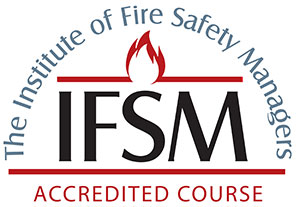Level 3 Award in the Inspection and Testing of Fire Stopping Installations
Description
Level 3 Award in the Inspection and Testing of Fire Stopping Installations
Fire Stopping Inspection Classroom Course
4 Day Course & 1 Day Assessment – £1200.00 + VAT
Day 1 & 2 Core Module
Aim: The ‘Core Module’ covers the Building Regulations, Regulatory Reform Fire Safety Order and the basics of fire and fire testing undertaken in the laboratory.
Delivery: The sessions will be delivered using mainly PowerPoint presentations and group discussion. Photographs and samples are used to emphasise certain aspects of the course.
Building Regulations & Relevant Fire Safety Legislation
The Building Regulations module provides an introduction to the building regulations in the United Kingdom, specifically relating them to fire protection and the construction industry, for example Approved Document B to the Building Regulations. Passive and active systems are introduced as the basis of satisfying the requirements of the regulations. The module provides a detailed look at the Building Regulations and Approved Document B and covers other fire related documentation, including the Regulatory Reform (Fire) Order, product and installer certification and others are also briefly examined. The final section looks at UKCA marking.
Fire and Fire Testing
The fire module provides an introduction to fire and then examines the testing undertaken
within the laboratory. This section provides the background information on the behaviour of fire and what happens during the fire test. The first part of the fire module looks at what happens when a fire occurs, how it develops and how fire is used in the laboratory to test various materials, products and systems relevant to the building industry. The presentation concentrates primarily on the large-scale system tests that are used to prove the elements of construction encountered on site. Small-scale material/component tests are also briefly looked at. The differences between the current British Standard test and the European test are briefly covered.
The final section within this module looks at examples of actual fires that have occurred over the last 50 years and the social impact of fires, supported by case studies.
Day 3 The Product Module
Aim: to enable delegates to familiarise themselves with the more popular products and systems used in fire stopping, penetration sealing systems and cavity barriers and be aware of the do’s and dont’s for installing such products, providing an overall understanding of why it is important that they are installed to specification.
Delivery: The sessions will be delivered using mainly PowerPoint presentations and group discussion. Photographs and samples are used to emphasise certain aspects of the course, with props and practicals completed to support the theory.
The ‘Product Module’ relates to products to be used for fire protection. The presentation looks generically at the types of protection and the method of installation for the protection system. This product module covers ‘Penetration Sealing Systems’ and ‘Cavity Barrier Systems’.
Covering some of the more common fire stopping materials available and cavity barrier systems and their installation requirements. The module also looks at how the correct fixing of the system is important to prevent fire spread from one side of the separating element to the other.
The first part of the penetration sealing system module provides an introduction to fire stopping and looks at the requirements of the Building Regulations with respect to penetration sealing systems and the ability to reinstate the fire separation of the building element therefore restricting the spread of fire and smoke. Also covering cavity barriers for the purpose of restricting flame and smoke movement within concealed spaces, which may allow the unseen movement of smoke and flames from one part of a building to another. This relates to the requirements of the building regulations.
This module looks at the requirements of the test including the importance of the support system for the services and the supporting construction.
The product module reviews the various aspects of the installation on site of the more popular products and systems available. Initially looking into the differences in the supporting construction, the support system and some of the more questionable sealing systems encountered. The requirements when sealing around ducts and dampers is examined. We look at the more common types of fire stopping products available including coated mineral wool batts, pipe collars, sealants, linear gap seals, etc. The installation requirements of these products are compared to many specific site examples encountered over years of inspection visits. Unusual and non-standard details are discussed to assist installers with their own work. The final products examined are those used for sealing linear gaps – the material chosen ultimately dependent on the size of gap encountered.
Another important aspect of fire protection systems is maintenance and inspection; some of the systems are examined to help ensure that the system will still perform following installation in several years time. The module discusses the importance of quality records and looks at labelling as part of the records maintained by the installer company.
Day 4 Site Inspection Module
Aim: To introduce candidates to the role of a Fire Stopping Inspector and general inspection criteria, covering health and safety, agreements and destructive and non-destructive testing. Delivery: The sessions will be delivered using mainly PowerPoint presentations and group discussion. Photographs and samples are used to emphasise certain aspects of the course, with props and practicals completed to support the theory.
Penetration Sealing Systems and Linear Gap Seals Inspections Criteria Practical and written and photographic examples of the following:
• Coated Mineral Batts
• Mortar Compounds
• Pillows/Bags Cushions
• Pipe Collars
• Pipe Sleeves and Pipes Wraps
• Intumescent Cable Management System
• Intumescent Mastic
• Graphite Mastic
• Fire Dampers (Masonry)
• Fire Dampers (Plasterboard)
• Batt Pattressing
• Plasterboard Pattresses
• Linear Gap Seals Sandwich Type
• Polyurethane Expanding Foam
• Cavity Barriers Inspection Criteria
• Cavity Barriers Do’s and Don’ts
This module covers the conducting of onsite inspections and documentation process required including the writing of reports, documented fire protection and non-documented fire protection.
Level 3 Inspection Assessment
Date and time for assessment will be allocated when the above course has been passed and the candidate learning criteria has been met.
The ProQual Level 3 Award in the Inspection and Testing of Fire Stopping Installations provides a nationally recognised industry specific qualification which demonstrates competence in inspecting and testing of fire stopping, penetration sealing systems and cavity barriers to ensure that they meet current regulations and requirements.
The awarding body for this qualification is ProQual Awarding Body (www.proqualab.com) and the regulatory body is the Office of Qualifications and Examinations Regulation (Ofqual).
The qualification has been accredited onto the Regulated Qualifications Framework (RQF) and is published on Ofqual’s Register of Qualifications.
This qualification is competence-based, candidates must demonstrate the level of competence described in the unit. Assessment is the process of measuring a candidate’s skill, knowledge and understanding against the standards set in the qualification.
Each candidate is required to demonstrate their achievement of all of the learning outcomes and assessment criteria through an appropriate assessment method.
The Level 3 Award in the Inspection and Testing of of Fire Stopping Installations holds 40 CPD hours, which were awarded by the Institution of Fire Engineers.
This course has been awarded the recognised educational programme status by the Institution of Fire Engineers.
This course is accredited by the Institute of Fire Safety Managers.













